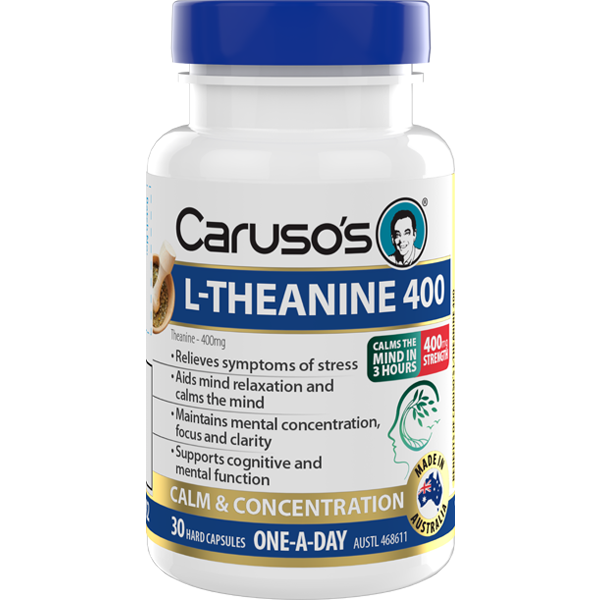Men's Mental Health & Wellbeing

It is a common stereotype that men have a tendency to bottle up their feelings – but mental health is no topic to be shy about, it’s something that should be comfortably discussed, just like our physical health is. Mental health is an essential component of overall health, alongside physical and social wellbeing. It is a state of wellness that is more than just psychological wellbeing or having the absence of mental illness, it’s fundamental in our everyday lives, relating to cognitive functions, behaviours, processing emotions, social interactions, ability to cope with stress and essentially, a positive state of mental health allows us to realise our abilities and function at our full potential.
The phrase ‘mental health’ is often confused with the conditions that impact mental health, however the two are very different. A mental illness is defined as “a clinically diagnosable disorder that significantly interferes with a person’s cognitive, emotional or social abilities” and can include conditions such as stress, mild anxiety, sleep disorders, affective or mood disorders and substance use disorders. There are varying degrees to these conditions and an individual does not need to meet all of the criteria of a mental illness or disorder to display some of the signs and symptoms.
All individuals face the risk of being affected by mental health conditions, although there are factors which can make certain groups of people more vulnerable to developing mental health problems. Factors that can play a role in this include: psychological, biological and genetic, environmental, social, lifestyle and dietary factors. Negative mental health can be associated with traumatic life experiences, a rapid change in social settings, discrimination, exclusion, stressful work conditions or the misuse of recreational drugs, alcohol and tobacco. Socioeconomic factors such as a person’s education level, employment status, level of income, housing conditions and accessibility / availability to services also strongly influence mental health.
Mental health conditions and disorders are more common than you may think. The most recent National Health Survey indicated that almost 1 in 2 (46%) of Australians aged 16-85 years have experienced a mental health disorder during their lifetime and of this, 48% were males which is a higher proportion when compared to females. The most prevalent type of disorder was mild anxiety (14%), followed by affective disorders (6.2%) and substance use disorders (5.1%). Substance use disorders were male dominated, with men displaying twice the rate of women. The data suggested that there is also a strong association of co-morbidity with mental health conditions and physical chronic conditions, meaning these two areas often overlap.
So what can this look like in populations of men? Well some of the early warning signs can be vague although they can be seen as withdrawal from social activities, trouble sleeping, low energy and fatigue, inconsistent eating patterns, difficulty with daily tasks, impacted cognitive functions such as focus, concentration and clarity, changes in mood/emotions and increased feelings of irritability, nervous tension, restlessness and/or stress. Mental health disorders and their related signs and symptoms can appear differently for everyone, as it is a unique experience for every individual with varying levels of severity, duration and this may also change throughout different stages of life.
There are specific types of health factors known as ‘modifiable risk factors’, which are recognised influencers of mental health, both positively and negatively. Maintaining a healthy balance of these modifiable risk factors may help you to keep a consistent positive state of mental health.
Examples of modifiable risk factors include:
- An unhealthy weight can also be a contributing factor to conditions of poor mental health. Research has shown the association between the two, but it being overweight can impact additional things such as our self-confidence levels, which can be closely related to our mood. Data showed that of Australians aged 18 and over, there was a greater proportion of men who were overweight or obese (74.5%). To support a healthy weight range, start by calculating your Body Mass Index (BMI) and set target goals to achieve, using the BMI scale as a reference guide. If you are unsure how to start, don’t be afraid to seek the advice of a qualified health practitioner who specialises in this area.
- In Australia, the minority of the population has met the national physical activity guidelines, with only 15% of people aged 18-64 years achieving these daily recommendations. Physical activity is essential for our wellbeing, not just physically but mentally too – It helps to simulate the release of brain chemicals that are essential for a healthy mood balance. The Australian guidelines recommend adults participate in 30 minutes of moderate to intense physical activity, daily. This is equivalent to a total of approximately 2.5 – 5 hours per week.
- Men have a higher prevalence of substance use compared to women, but they also have higher rates of tobacco smoking (16.5%) and exceeding alcohol consumption of more than four standard drinks per day (54.2%). The misuse of substances alongside mental health disorders is known as a ‘dual diagnosis’ and can have a complex relationship. People may initially find the reduction of substances difficult, however the long-term benefits outweigh these complaints and they are likely to experience improvements in various aspects of their general health with the positive changes.
- Diet plays a major role in many aspects of our life, and this doesn’t fall short when it comes to mental health. Our diet is a source of important vitamins, minerals, amino acids, antioxidants and much more, which all support numerous body systems and functions. In Australia, only 5.4% of adults had met the guidelines for daily intake of both fruit and vegetables. The Australian guidelines recommend enjoying a wide variety of nutritious, colourful foods from the main five food groups: vegetables, fruits, grains, lean meats and reduced fat dairy. Statistics show that when compared to women, men are almost twice as likely to consume sugar sweetened drinks daily (11.8%), so it is also important to minimise the intake of junk foods such as sugary drinks, saturated fats, processed and refined foods, which contain minimal nutrients .
- Sleep is essential for our overall health, but it is especially important for our mental health, with research showing that there’s a strong association between sleep quality and mental health. During sleep, the body relaxes and restores itself while the mind calms down from daily chatter. Research from the 2016 Sleep Health Survey of Australian Adults has shown that 33-45% of adults have inadequate sleep, either duration or quality, and this has shown to consequently impact daytime performances in a negative way. The national sleep guidelines recommend that adults aged 18 and over sleep for 7-9 hours per night. To support a healthy sleeping pattern and bedtime routine, try out some of the practices of sleep hygiene.
**Statistics derived from the AIHW National Health Survey 2017-18 and ABS National Survey of Mental Health and Wellbeing, unless mentioned otherwise.
In the same way everybody presents differently with their mental health disorder, the treatments which are used to manage these conditions, will also be unique to each individual. The path to positive mental health can often be a journey where various methods and approaches are used, however they are most successful in combination. Seeking medical advice from a qualified health professional will ensure that suitable options are explored, to benefit the needs of each individual person.
In addition to modifiable risk factors, other ways to manage your mental health may include:
- Psychotherapy, or ‘talk therapy’ such as with a counsellor, psychologist or psychiatrist
- Relaxation techniques such as deep breathing, meditation or mindfulness
- Support network of close friends, family or community – staying connected with others
- Environments which are safe, respectful and protect all human rights
- Increasing education and self-awareness surrounding mental health
- Developing a range of coping skills and mechanisms to draw from in times of need
- The use of nutritional supplementation or prescribed medications
So to all the men out there: whether you are recovering from a mental illness, wanting to improve your current circumstances or looking to help a friend – mental health disorders are more common than you may think, and most importantly, they can be effectively managed with the right treatment. Maintaining a positive state of mental health can significantly improve the quality of your life.
References available upon request.
Try it now

Caruso's Total Sleep®
Try it now

Caruso's L-Theanine 400
Try it now




